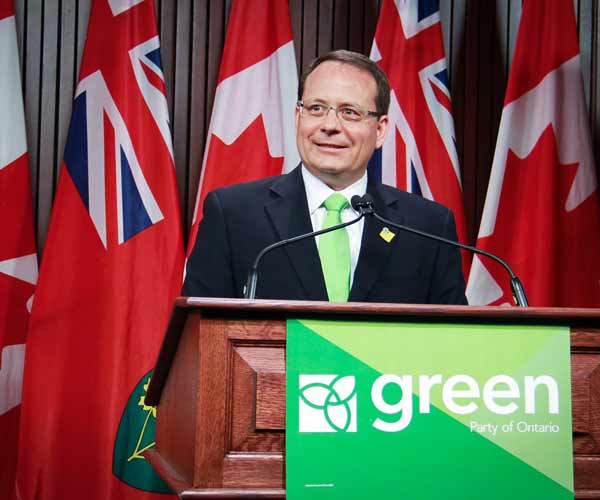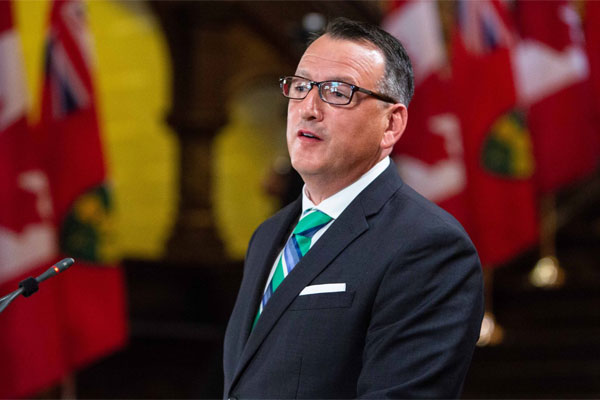Doug Ford’s attack on energy policy continues. Last week a self-congratulatory press release announced legislation aimed at canceling the Green Energy Act. And on September 25 the government revoked some long-awaited and pending changes to Ontario’s net metering regulations, just a week before they were to take effect.
In truth, much of the Green Energy Act was already undone; in particular, the cancellation of the Feed-in Tariff Program was achieved under the previous Liberal government, though it was recently finalized under Ford with the cancellation of the remaining unfinished projects.
So the action is perhaps more symbolic than effective and represents Ford’s ongoing commitment to reversing the progressive energy policy legacy of the Liberals.
Greg Rickford, Minister of Energy, Northern Development and Mines, said in the release that “The Green Energy Act represents the largest transfer of money from the poor and middle class to the rich in Ontario’s history.”
While this sentiment may be shared by many, thousands of farmers and homeowners – who purchased and installed generation equipment, supplementing their income and kickstarting the industry in Ontario – would likely differ.
Federal Environment Minister Catherine McKenna called the decision “unfortunate”, and criticized the government for walking away from “the biggest economic opportunity of the century”.

Green Party leader Mike Schreiner went further, calling the move “an injustice to future generations, who deserve to have clean air, a stable planet and an affordable energy system.”
With the end of the FIT and MicroFIT programs, many in the industry have looked to net metering as the next window for solar, and amendments to broaden the opportunities – decided upon after years of consultations and deliberations – were scheduled to take effect October 1.
These have also now been revoked.
The net metering announcement reads:
“Amendments made on April 20, 2018
Community groups, along with many other solar industry actors, saw in these a promise of growth in the solar deployed in the province, and the variety and flexibility of business relationships that could occur between home and business owners, suppliers, and financiers.
The Ministry itself noted on the Environmental Registry that feedback from stakeholders “was generally positive and supportive”.

The David Suzuki Foundation, in comments it submitted, lauded these amendments, saying they would provide “much-needed flexibility to our energy system” while removing some of the “rigid” barriers to wider participation.
These sentiments were echoed in comments from farm groups, renewable energy developers, consulting agencies, and municipalities (Guelph, Parry Sound), with many offering helpful comments and calls for further clarification.
Regrettably, these important amendments to the existing net metering regulations, which would have enabled many more Ontario residents and businesses to benefit from net metering while supporting innovation and growth in the solar industry, are now relegated to the growing file of progressive energy policies that have been dismantled by the Ford machine – a file that might be labeled “let’s try again in a few years”.














Comments